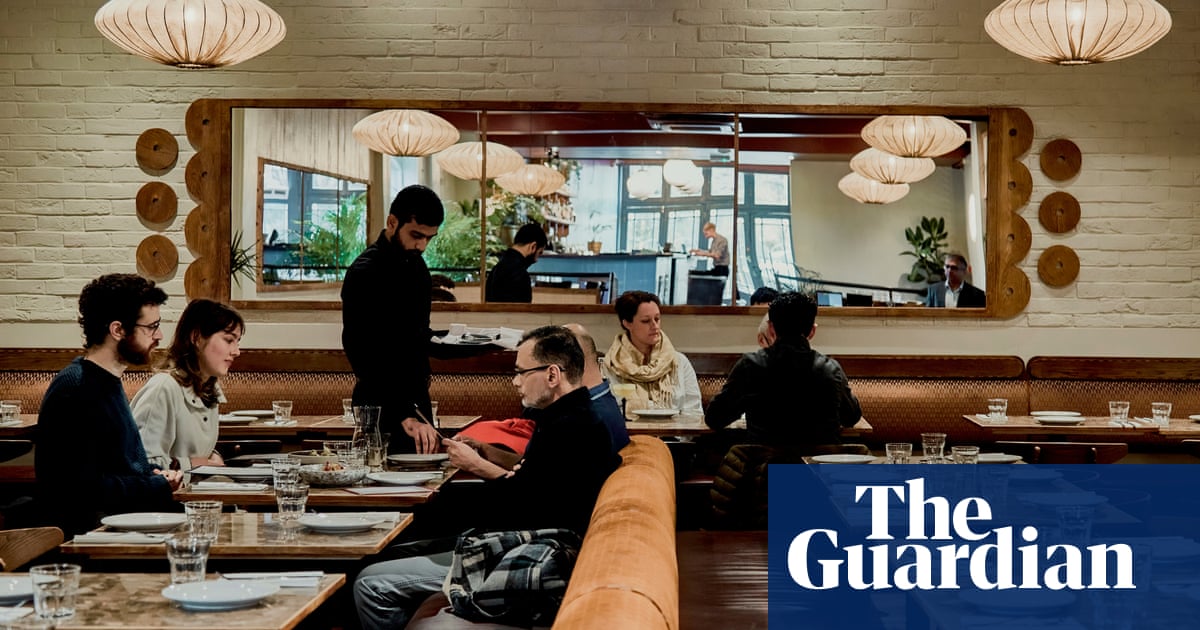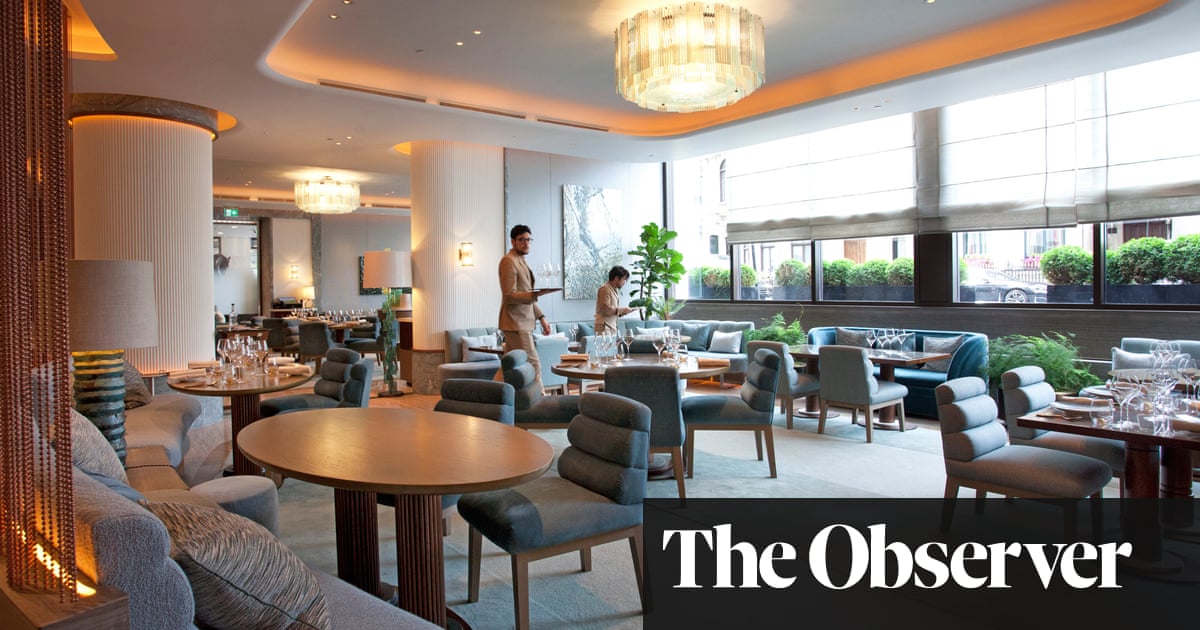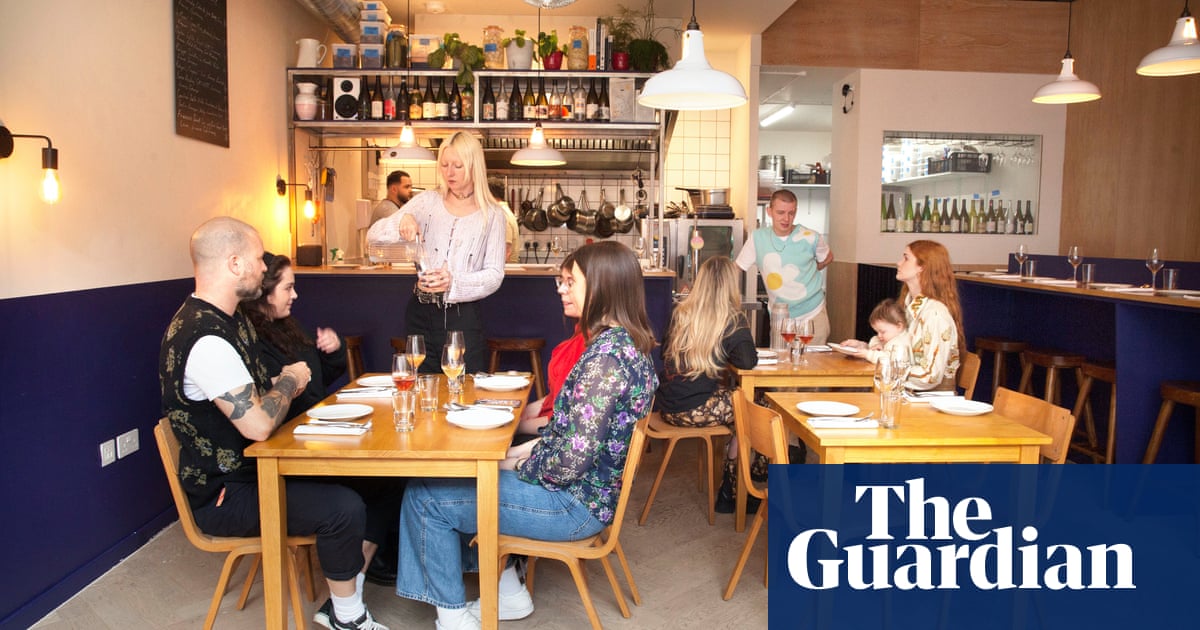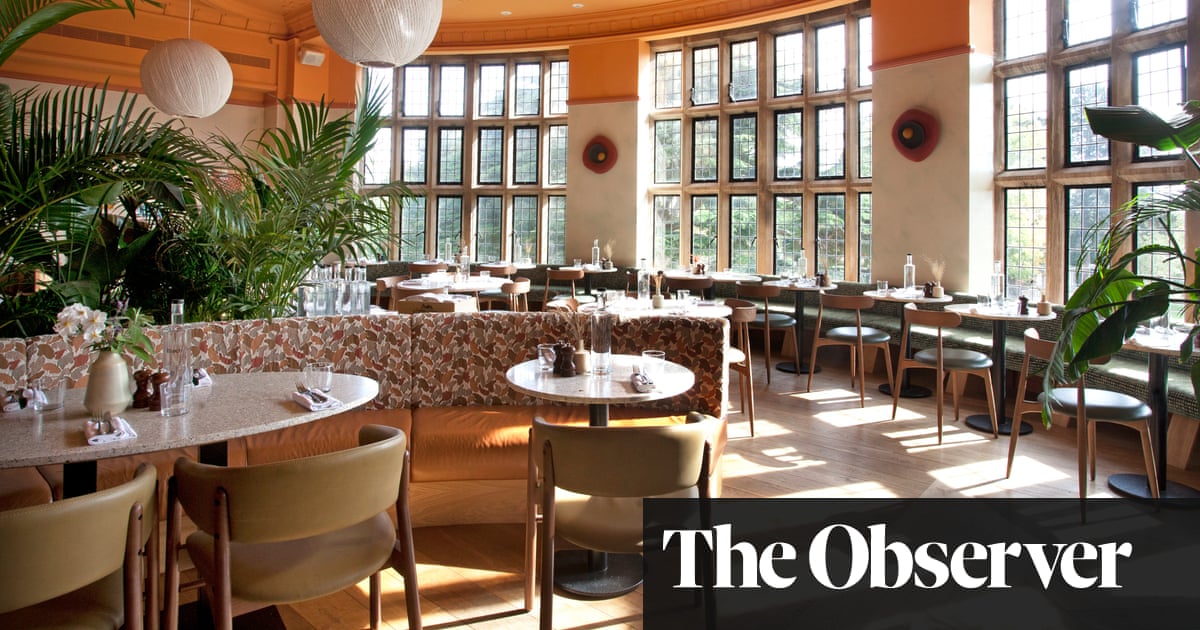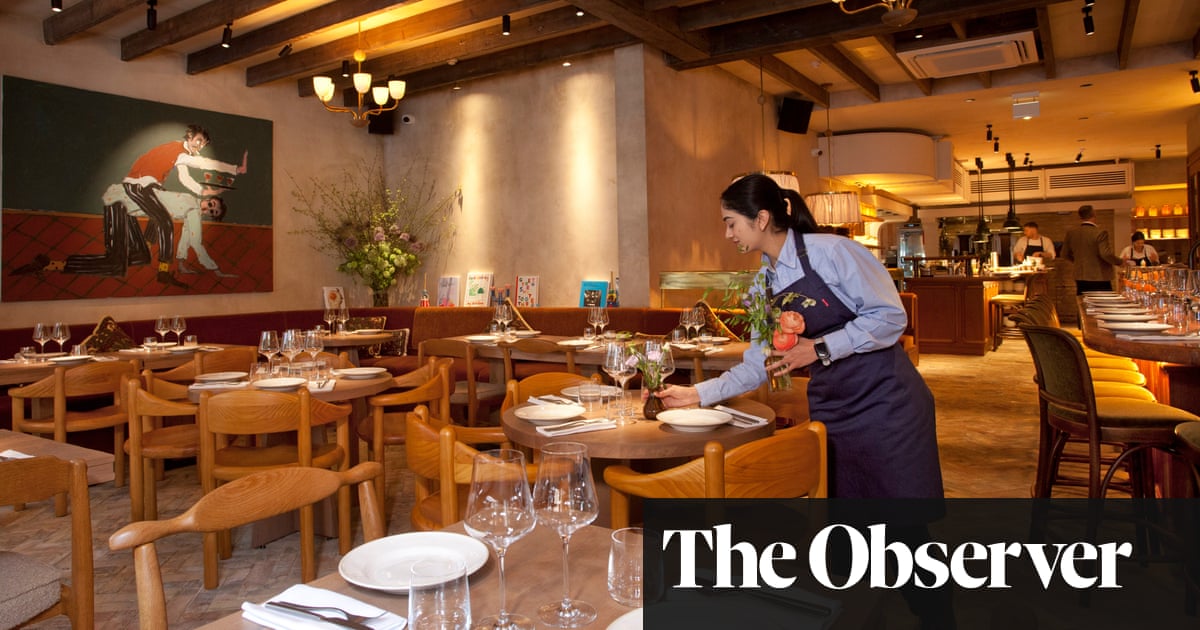
Goat on the Roof, 1 Bridge Street, Newbury RG14 5BE (01635 580015). Small plates £3.80-£9.50, bigger plates £9-£18, desserts £4-£7.50, wines from £29
I might as well get my second apology to Newbury in now. It’s more than warranted. Back in 2011, I was asked to contribute a short piece in support of a favourite cheese. I chose emmental. I said emmental was “at first sight, the Newbury of cheeses: it’s solid, workmanlike, but very, very dull”. I went on to say that this shouldn’t be misunderstood; that, just like Newbury, emmental is a reliable and important workhorse, but by then the damage had been done. “Historically, possibly Newbury was dull,” the outraged chair of the Newbury Society told the BBC. “But it’s changed a lot in the past two years.”
Spool forward five years and I am booked to perform one of my brilliant shows in Newbury. As my agent said at the time, “Why the hell couldn’t you have been rude about Slough? They’re used to it.” So, I posted an apology to Newbury. Shockingly, some suggested it was motivated by a mercenary desire to flog tickets. As if. Though happily it did sell a few tickets. Anyway, it’s time to say sorry all over again. Because seated in the crowded dining room of Goat on the Roof, a terrific, wine-led restaurant overlooking the River Kennet in the centre of town, it feels like being in a cross between fin de siècle Paris and Renaissance Venice. Or at least the closest thing Berkshire can offer in 2024. It is a romping wave of bubbling chatter, clinking glasses, laughter and impressive food. And all at 6.30pm on a wet Tuesday.
Goat on the Roof is the brainchild of Patrick Vaughan-Fowler. He started his career with Louis Latour, worked as a sommelier in London and ran a local pub, before coming across this banking hall turned Japanese restaurant. He opened a wine bar upstairs, installed a long counter for eating at, bistro chairs and tables, and hung the walls with paintings of goats. A lot of goats. I ask him where the name came from. “I was drunk in Portugal once,” he says, as if that explains everything. The wine side of the business manages the neat trick of being serious, without taking itself too seriously. The list runs to about 130 encouragingly priced bins, only a handful of which break three figures. It wanders Europe, much like a Georgian gentleman on a dizzying Grand Tour. Worry not. The staff know this list. Tell them what you like. They’ll see you right. We have a 2021 Se Canta Colombard-Gros Manseng from the Côtes de Gascogne for £39. It’s grassy and fresh and tastes of high summer.
As to the food, prepare yourself for a tableside speech involving words like “local”, “seasonal”, “foraged” and “you’re a good person for eating here”. Perhaps the last one is only implied. It’s one of the curious elements of the modern restaurant experience that you first have to receive absolution for choosing to spend your money on a nice time out. Let’s just accept that the chef, Sam May, cares about his ingredients. This is a good thing. The kitchen then takes all this local stuff and turns it into a wanderlust of small and medium plates, which romp about the world much like the wine list.
They’re especially good at glossy, emulsified dressings. There’s a skewer of a quail’s egg with a liquid yolk, a mushroom, a radish and a shiny bead of cherry tomato that you are encouraged to take in one mouthful. There’s another of scallop, salmon and a smoky piece of haddock. Both come under a slumping and herb-speckled lawn-green sauce. Marmitey crispbreads accompany a rough and raging dip of locally made ’nduja, and there’s a plate of crunchy fermented vegetables, the right side of festering, with a mayonnaise giving us a full horn section of wild garlic.
From the specials, there are slices of a delicate halibut sashimi, dribbled with herb oil, and partnered by separate quenelles of grated beetroot and horseradish, so you can mix your own bespoke-strength condiment. There’s also a savoury doughnut filled with a whipped and hyper-smooth chicken liver parfait, which squeezes its way out of the centre as you cut in as if it’s auditioning to be caramel sauce. On the side is a pot of sweet-sour rhubarb compote. And if you’re reading this and not now making a quiet, helpless, keening sound, like a shivering kitten needing a hug, really, how were we ever friends? Even if you’re not a meat eater?
Brisket is slow-cooked for 48 hours, then served in room-temperature slices with a cooling heap of smoked mascarpone with the pleasing autumnal tang of bonfire. Impeccable tomatoes lie atop a poky salsa verde; golden cubes of potato are so crisp more than one trip through the fryer had to have been involved and they loiter on a mess of tomatoes and garlic mayo. We have salt-baked beetroot on a mound of snowy goat’s curd with chilli and black garlic, and a brick of slow-cooked pork belly with vinegary chimichurri to show the soft fat who’s boss. Each dish is a couple of simple ideas, brought together with good taste. If I was being picky, I’d whinge about the thin crackling strips with the pork belly, rather than a full-on crunchy slab. But then I’d remember I am still trying to make friends with Newbury, and shut up. Because this cooking is not just smart and thoughtful. It’s also well priced, like they really want your business. Everything is in the low teens or below, apart from a steak which gets to a lofty £18. Nothing dull about that.
We finish with loops of torched Italian meringue, topped with strawberries and basil, and a chocolate mousse with both caramel and a hit of coffee. We spoon these away while talking wistfully of the choux bun, encased in the thinnest of crisp craquelin and filled with a sharp lemon curd. It’s a lemon tart re-engineered as a ball. It’s an orb of dessert cleverness. This chatter is lubricated by a lightly sparkling Les Chants Jumeaux dessert wine from the Loire, because we have now given ourselves to Patrick’s wine list. I wander back to the train station, dwelling upon how poor a judge of character I had once been. Had I found excitement in Newbury? Or had it simply been there all along?
News bites
The Italian food delivery company Pasta Evangelists, which already runs a few dozen takeaways, has opened its first eat-in restaurant and plans to open 20 more over the next five years. The new site is in Richmond, southwest London, and has a menu including truffle mac’n’cheese, slow cooked beef and chianti ragu and lobster tortellini. A second outpost is planned for Greenwich (pastaevangelists.com).
Lake District chef Ryan Blackburn of the Michelin-starred Old Stamp House, has closed his Ambleside restaurant Kysty and will open two new businesses. One will be a small plates bistro called the Schelly, the name of a freshwater fish found in the area. It will occupy a space immediately above the Old Stamp House. The second will be a development kitchen and private dining room for up to eight people called The Workshop (oldstamphouse.com).
A new company selling rum, vodka and gin has promised to channel all and any profits to environmental causes. Evrythng, which is the brainchild of James Law, says it has just one employee who will be paid per bottle sold, up to a ceiling of £85,000 and that anybody can review their accounts to check money isn’t being spent on air travel and corporate lunches. Find out more at evrythng.cc




